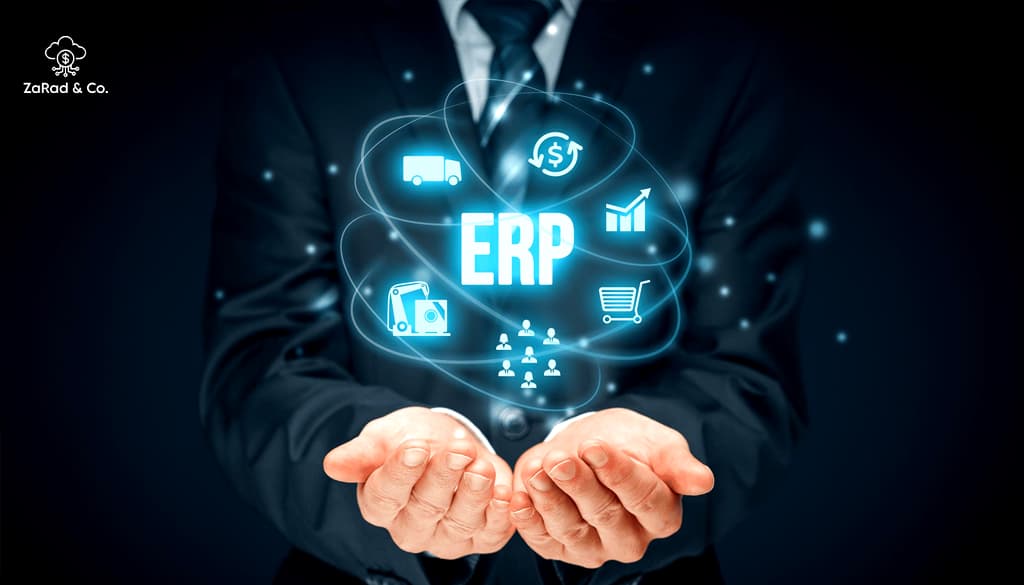What Is an ERP System?
ERP stands for Enterprise Resource Planning. It’s an integrated software solution that connects core business processes—like accounting, inventory, customer relationship management (CRM), HR, and supply chain—into one unified system. Instead of managing your data and operations through spreadsheets, disconnected apps, or manual tasks, ERP centralizes everything in real time, enabling:- Greater efficiency through automation
- Accurate reporting and performance insights
- Improved collaboration across teams
- Scalability as your business grows
Why SMBs Need ERP Systems
ERP is not just for large enterprises anymore. Modern cloud-based solutions have made ERP more accessible, affordable, and customizable for SMBs. Benefits include:- Faster decision-making with real-time dashboards
- Inventory optimization across locations and channels
- Streamlined financials with fewer errors
- Better customer service through integrated CRM data
- Compliance and data security in one secure environment
What to Look for in the Best ERP for SMBs
Not all ERP systems are created equal. When evaluating options, focus on these key areas:1. Modular Flexibility
You shouldn’t have to pay for features you don’t use. Look for ERP platforms that let you start small and add modules as you grow—like accounting, HR, CRM, or warehouse management.2. Cloud-Based and Scalable
A cloud ERP system ensures easier access, faster updates, lower upfront costs, and better remote collaboration. Make sure it can scale with your users, data, and transaction volume.3. Ease of Use
A clean, intuitive interface will make adoption easier across your team. Avoid systems that require heavy training or constant IT support.4. Integration Capabilities
Your ERP should connect smoothly with your existing tools—such as your e-commerce platform, CRM, or email marketing system.5. Reporting and Analytics
Look for customizable dashboards, KPI tracking, and exportable reports. Visibility into your business performance is a key ERP advantage.6. Vendor Support and Community
Strong onboarding, documentation, and customer support make a huge difference. Bonus if the platform has a large user community and trusted partners.Top ERP Systems for SMBs in 2025
Here are some of the best ERP platforms for small and medium businesses, based on flexibility, affordability, and features:| ERP System | Ideal For | Key Features |
| Odoo | Customizable, budget-conscious SMBs | Open-source, modular, CRM, accounting, e-commerce |
| NetSuite (Oracle) | Rapidly scaling SMBs | End-to-end cloud ERP, financials, strong analytics |
| SAP Business One | Established midsize businesses | Robust reporting, supply chain focus |
| Zoho ERP | Small teams needing CRM + operations | CRM integration, cloud apps, ease of use |
| Microsoft Dynamics 365 | Tech-savvy SMBs needing deep integrations | Office 365 integration, AI features, advanced analytics |
How Zarad & Co. Helps SMBs Select and Implement ERP
Choosing an ERP system is only the beginning. At Zarad & Co., we guide SMBs through the entire ERP journey:- Business process audit to uncover pain points and inefficiencies
- ERP vendor evaluation and selection based on your needs and budget
- Implementation planning to minimize downtime and disruption
- Staff training and change management for successful adoption
- Ongoing support as your business evolves
Is Your Business Ready for ERP?
Here are signs you may need to upgrade to a modern ERP system:- You’re using spreadsheets to manage inventory, orders, or finance
- Your teams complain about data silos or manual processes
- You struggle to generate accurate, timely reports
- Your systems don’t “talk” to each other
- You’re planning to scale, expand, or add new product lines

